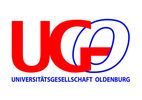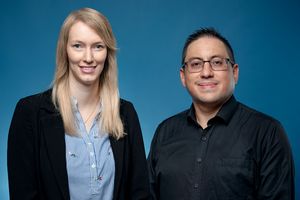ZLE - Short interview
Today we are talking about Open Science - a topic that is becoming increasingly important and the subject of much discussion. How did you come to this topic?
In our project, we quickly realized that obtaining the required data and models suitable for developing energy scenarios is challenging. This difficulty arises partly from the interdisciplinary nature of the energy sector, which presents issues during the search for relevant data and models. Additionally, much of the required is either not accessible, has not been published in an accessible format, or does not exist. This experiences led us to explore the topic of Open Science.
What is behind your project? To what extent does your project support the topic of Open Science?
The „Zukunftslabor Energie“ is developing a research and development web platform and also working on different scenarios for energy supply, focusing on user interaction in digitalized energy systems. The goal of the project is to digitize energy research and make it more transparent by making methods, software, data and research results publicly available. This in itself supports Open Science. In addition, at the start of the project an Open Science Declaration was formulated, which can be used as a template to guide research activities in similar projects.
What (scientific) aspirations do you personally associate with Open Science? How does this manifest itself in your daily work?
Our scientific commitment to Open Science is to make research more accessible, transparent, and collaborative. We aim to make our data, models, and software available in public repositories. Whenever possible, reports, scientific papers and other publications should be freely available to the public. This not only enhances the organization and preparation of our own work but also ensures that these resources can be reused by others, reducing access barriers.
What would an ideal Open Science world look like for you?
In an ideal open science world, all scientific publications, data and resources would be freely accessible to everyone, removing barriers such as paywalls. Methods and software would be transparently documented and shared, which would promote reproducibility and collaborative innovation. Overall, the open exchange of data and communication would enable better science. Aspects such as common ontology, interoperability, and findability, are fully integrated into research artifacts.
Finally, what advice do you have for Open Science newcomers?
Start by sharing your data and methods openly, and use available Open Science tools and platforms. Engage with the Open Science community to learn and adapt, and prioritize transparency in your research processes. During the development of open data and open source artifacts, ensure proper documentation and develop clear examples to ease the reusability of these artifacts.




